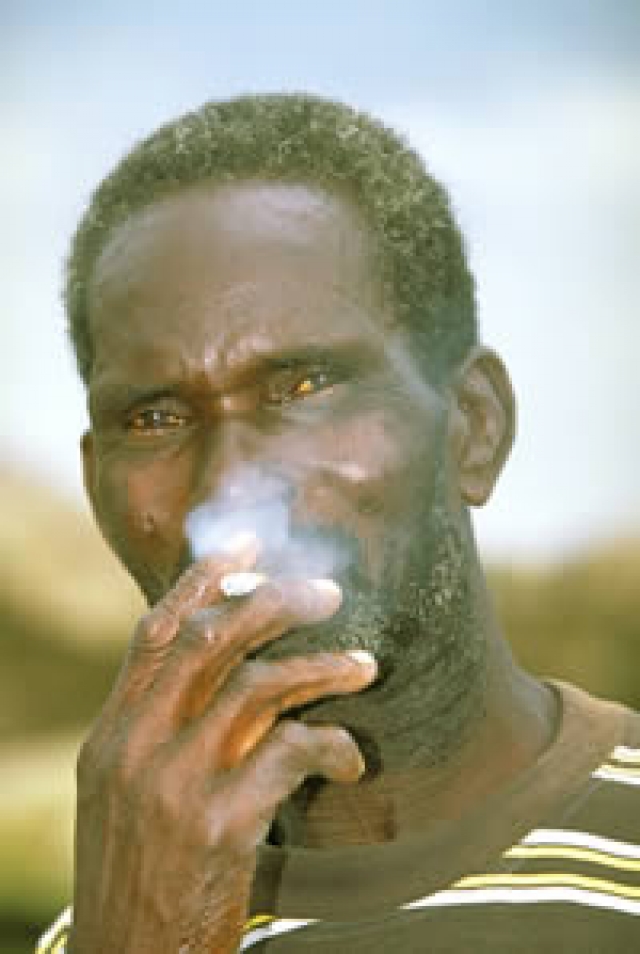Countries in WHO African Region Make Progress in Implementing Global Tobacco Control Treaty
 Brazzaville, 6 September 2013 -- Countries in the WHO African Region have made good progress in protecting people from the devastating effects of tobacco use on health but more still needs to be done, according to WHO Regional Director for Africa, Dr Luis Sambo.
Brazzaville, 6 September 2013 -- Countries in the WHO African Region have made good progress in protecting people from the devastating effects of tobacco use on health but more still needs to be done, according to WHO Regional Director for Africa, Dr Luis Sambo.
In a report presented today to the 63rd session of the WHO Regional Committee for Africa which is taking place in Brazzaville, Congo, Dr Sambo indicated that as at July 2013, 41 of the 47 Member States in the region had ratified or acceded to the WHO Framework Convention on Tobacco Control (WHO FCTC) treaty and have designated staff for national tobacco control, compared to only nine in 2005.
The WHO FCTC is the first global public health agreement that seeks "to protect present and future generations from the devastating health, social, environmental and economic consequences of tobacco consumption and exposure to tobacco smoke. The treaty's provisions include rules that govern the production, sale, distribution, advertisement, and taxation of tobacco.
Most countries are also carrying out education and awareness activities to sensitise the public on the health risks of tobacco and the benefits of a tobacco-free lifestyle. Twenty-seven countries are implementing tobacco cessation through education and health promotion programmes set up in health-care facilities
According to the report, 29 countries have measures in place to protect members of the public from exposure to tobacco smoke. In five countries, there are laws that make it an offence to smoke in all indoor areas including workplaces, restaurants and bars. Health warnings are required on packages of tobacco products in 20 countries. In Madagascar and Mauritius, tobacco packages must carry picture-based warnings associated with greater recall, increased motivation to quit smoking, and greater attempts to quit.
Tobacco advertising, promotion and sponsorship is restricted in 29 and some countries have imposed a compre-hensive advertising ban.
In November 2012, three countries committed themselves to be even more stringent in regulating tobacco by agreeing to the establishment of a global tracking and tracing system to reduce and eventually eradicate illicit trade in tobacco products.
The Regional Director however added that despite significant progress made in implementing the provisions of the international treaty for tobacco control, some challenges still remain.
These include tobacco industry’s aggressive marketing techniques and interference with tobacco control programmes, and inadequate allocation of resources by countries for tobacco control.
_______________________________________________
For more information, please contact:
Media contact: Cam [at] afro.who.int (Cam[at]afro[dot]who[dot]int), WHO Regional Office for Africa, P.O Box 6, Brazzaville, Republic of Congo Tel: +47 241 39100


